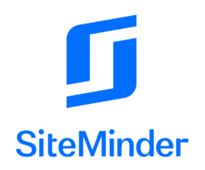Guide to hotel fees and surcharges for hotels

What are hotel fees?
Hotel fees encompass a range of extra charges guests may pay for amenities and services. However, they are more than just additional charges on a guest’s bill. They can also be strategic revenue boosters that can significantly elevate your hotel’s profitability.
Examples might include resort fees that cover property maintenance, parking fees, or additional cleaning fees if guests bring pets.
While hotel fees can be powerful secondary revenue generators or a useful tool to mitigate additional operational costs, there is an art to applying them effectively. Too many additional fees will put guests off and have them question the value of their stay.
In this blog you’ll learn how your hotel can effectively, transparently and considerately apply fees to boost your revenue, reduce your overall costs, and keep guests happy.
Table of contents
- 1. What are hotel fees?
- 2. Common hotel fees and surcharges
- 3. Hotel fees and surcharges transparency
- 4. Hotel fees and taxes strategy
- 5. How being upfront with hotel charges can increase profit
- 6. Unlock your full revenue potential with SiteMinder
Common hotel fees and surcharges
While every hotel is unique and thus has unique opportunities for charging fees, there are some areas where it’s more common (and expected) to see an additional fee. These include:
Resort and amenity fees
These fees cover the use and maintenance of on-site facilities like swimming pools, gyms, and spas. They offer guests access to a range of amenities that elevate their stay, while also contributing to the upkeep of these facilities.
Parking fees
Whether it’s self-parking or valet service, parking fees provide secure and convenient options for guests who arrive with their own vehicles. These fees can be tiered based on the level of service offered. This can also include charges for unattended or long-term parking.
Late check out and early departure fees
These fees give guests the flexibility to extend their stay beyond standard check-out times or leave before their scheduled departure, while compensating the hotel for the inconvenience caused in room turnover.
Reservation cancellation fees
These are charged when guests cancel their bookings, especially if done at the last minute. They help mitigate the revenue loss from unsold rooms and encourage responsible booking behaviour.
Extra person fees
For rooms exceeding the standard occupancy, an extra person fee is charged to cover the additional costs of amenities and services.
Minibar or room service surcharges
These surcharges are applied to in-room dining or minibar usage, offering guests the luxury of convenience at a premium. This can also include room service delivery surcharges.
Internet fees and telephone call surcharges
While basic Wi-Fi might be complimentary, premium internet services or international calls can incur additional fees, catering to the needs of business travellers.
Business centre fees
For guests requiring access to computers, printers, or meeting rooms, a business centre fee may be applicable.
Charges for in-room safes
Some hotels offer in-room safes for an additional charge, providing guests with secure storage for valuables.
Baggage holding fees
For guests who need to store their luggage before check-in or after check-out, a nominal baggage holding fee can be charged.
Taxes and similar fees
While not traditionally considered a hotel fee, taxes can be considered in the same way in terms of it being an additional cost to your guest. Depending on where you’re operating, taxes may be included in the room price (e.g. GST), but there may be additional taxes that you charge a separate fee to cover, such as hotel bed tax, in some countries.
Hotel fees and surcharges transparency
For hotel guests, fees and surcharges are often considered an unnecessary nuisance. But for hotels and accommodation providers across the globe, they are becoming an increasingly vital revenue stream.
Research from Bjorn Hanson, a clinical professor at New York University’s School of Professional Studies Tisch Center for Hospitality and Tourism, revealed that hotels in the US have been collecting record amounts of fees, with the upward trend showing no signs of slowing down. This is no great surprise given that fees and surcharges can result in up to 90% profitability for savvy hoteliers. The figures also suggested that the growth in numbers is a reflection of the rise in occupancy rates, as well as the increase in the amount charged for fees and surcharges.
Furthermore, some new fees are becoming increasingly-common too. They include:
- Special charges for set-up and breakdown of meeting rooms
- Early check-in fees
- Fees to guarantee a specific room
- Charges for unattended surface parking in suburban locations
- Fees for holding checked luggage
Importantly, the research uncovered a rise in the disclosure of fees and surcharges among hotels in the US.
While fees and surcharges are sometimes labelled as ‘hidden’ or ‘surprise’ charges, there’s a clear trend towards greater transparency. Hotels are using websites, confirmation emails, tent cards in guest rooms, room service menus, and guest service binders to disclose about fees. However, guests can still be surprised by these fees, likely due to a lack of industry-wide consistency on what fees can, should, and will be charged. Unlike brand-guided or industry-standardised charges, some hotel fees are determined on a hotel-by-hotel basis and can fluctuate frequently. This individualised approach to setting fees contributes to the sense that they are ‘hidden’ or ‘surprise’ charges for guests.
Disclosure is key and being transparent with guests is necessary to avoid a backlash when it comes to fees and surcharges for extras.
Hotel fees and taxes strategy
A great way to be honest with guests about fees and surcharges is to disclose them during the booking process, and offer as many as optional extras and add-ons.
For example, using a tool like SiteMinder’s hotel booking engine, you can add several options upfront that range from breakfast through to secure WiFi – something OTA Agoda.com identified as important to guests when they’re choosing a hotel.
Using SiteMinder’s booking engine as an example, you can enter extras and charges for many different scenarios. Here’s just a few of the ones we’ve seen our customers use:
- Per Booking – Late Checkout
- Per Person Per Night – Hot Breakfast
- Per Room – Champagne on arrival
- Per Room Per Night – Fresh Towels
- Per Person – Day Spa Package
You can even attribute certain extras to particular rooms, such as ‘King Suite 3-Night Special’. And our booking engine also allows you to set descriptions of the extra images to really sell its appeal, and applicable start and end dates to make seasonal offers throughout the year, such as Valentine’s Day and Easter.
It might seem like an easy option to simply package these extras into your rates but hoteliers should be warned against burying fees and surcharges away into room rates. Potential guests pay close attention to room rates, and focus less on extras, and fluctuations in the rates they’re keeping a close eye on can cause guests to look elsewhere.
While some argue that resort and other fees should be included in the room rates, there are compelling reasons for keeping them separate:
- Firstly, incorporating these fees into the room rate would make them subject to municipal occupancy taxes, thereby increasing the overall cost for guests.
- Secondly, room rates are highly dynamic and closely watched by travellers, whereas fees and surcharges tend to be more stable.
- Lastly, many travellers primarily focus on the room rate when making a booking decision, so keeping these fees separate allows for more transparent baseline pricing.
How being upfront with hotel charges can increase profit
By being upfront about all fees and surcharges, you eliminate the element of surprise, making guests more comfortable with spending on additional amenities. This straightforward approach also allows you to market these services more effectively, converting optional extras into must-have experiences that not only enhance the guest’s stay but also contribute to your revenue streams. Here’s how it helps:
Building trust
When you’re transparent about all the fees and charges, you’re essentially building a foundation of trust with your guests. This trust is invaluable; it not only encourages guests to make use of additional services but also fosters long-term relationships. A guest who trusts you is a guest who will return, and repeat business is often more profitable than acquiring new customers.
Effective marketing
Being upfront about charges allows you to market these services as value-added experiences rather than hidden costs. Whether it’s a spa package, a guided tour, or a special dining experience, clear pricing enables you to package these services in a way that makes them more appealing. This turns what could be seen as optional extras into integral parts of the guest experience, thereby increasing uptake and revenue.
Budget-friendly for guests
When guests know exactly what to expect in terms of charges, they can budget their trip more effectively and allow them to splurge on additional amenities, knowing that there won’t be any unexpected costs. Essentially, you’re empowering your guests to make informed choices that enhance their stay, and, by extension, empowering your business to create more meaningful value adds that are actually taken advantage of.
Positive reviews and recommendations
Transparency in pricing leads reduces the risk of negative reviews along the lines of “we got charged for every little extra thing! Stay away!”. In the age of online reviews and social media, de-risking around word-of-mouth marketing is incredibly valuable and contributes to increased bookings and, by extension, higher profits.
Unlock your full revenue potential with SiteMinder
Mastering your hotel fees can be your secret weapon for revenue growth. SiteMinder is here to help you unlock this untapped potential. Our platform is engineered to turn your hotel fees from simple add-ons into strategic revenue boosters, all while enhancing guest satisfaction.
- Simplified fee management: SiteMinder’s platform offers an intuitive system that allows you to easily categorise, track, and update various fees and surcharges.
- Transparent guest communication: Our platform enables automated, transparent communication about all fees and surcharges, sent directly to guests’ preferred communication channels. This not only builds trust but also encourages guests to utilise additional amenities, positively impacting your revenue.
- In-depth analytics: Monitor which aspects of your hotel are most profitable, how they compare to industry benchmarks, and what the uptake is among different guest segments. This data-driven approach allows you to make informed decisions, fine-tuning your fee structure for maximum profitability.
Get started with SiteMinder for free or watch a demo to learn more.

About SiteMinder
SiteMinder Limited (ASX:SDR) is the name behind SiteMinder, the world's leading hotel distribution and revenue platform, and Little Hotelier, an all-in-one hotel management software that makes the lives of small accommodation providers easier. The global company is headquartered in Sydney with offices in Bangalore, Bangkok, Barcelona, Berlin, Dallas, Galway, London, Manila and Mexico City. Through its technology and the largest partner ecosystem in the global hotel industry, SiteMinder generates more than 125 million reservations worth over US$50 billion in revenue for its hotel customers each year. For more information, visit siteminder.com.
